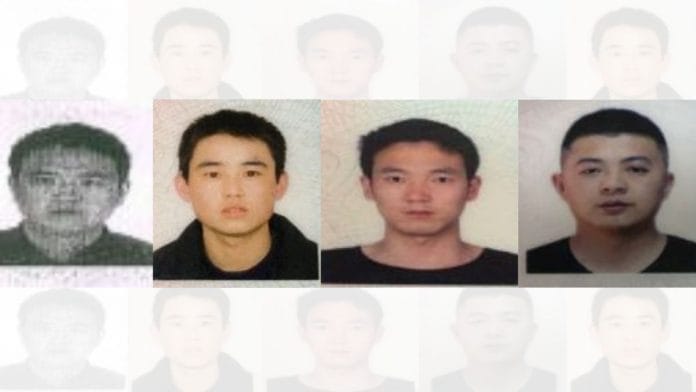New Delhi: In a bid to tighten the noose around crypto fraud, the Enforcement Directorate (ED) has for the first time attached cryptocurrencies of Chinese nationals parked in an international exchange, as part of its investigation into a Rs 400 crore gaming app scam, ThePrint has learnt.
On Tuesday, the federal probe agency provisionally attached crypto assets worth Rs 24.9 crore parked in three accounts maintained by three Chinese nationals in the world’s biggest crypto exchange, Binance, in its probe into gaming app FieWin which allegedly duped users through a chit fund-like fraud.
The ED was able to identify the Internet Protocol (IP) addresses of the accounts through which the cryptocurrencies had been routed and ascertained that they were being operated from China, leading investigators to reaching out to Binance for cooperation to crack down on the fraudsters.
The investigators identified the Chinese nationals as Huang Liangliang, Zhang Longlong and Zheng Wenjun.
“Money was routed from nearly 80 bank accounts of Indian users who put money in FieWin which worked somewhat like online chit fund schemes. The money was then used to purchase cryptocurrencies which were lying in six wallets opened with Binance and further parked in three accounts which have now been attached,” an ED official aware of the matter said.
The development comes after ThePrint reported in July that the ED and Binance collaborated for the first time in a crackdown on fraud committed through gaming app E-Nuggets, transferring nearly 300 cryptocurrencies worth Rs 93 crore from fraudulent wallets to the ED’s WazirX cryptocurrency account, changing how it investigates such fraud cases.
Sources in the agency said that once the Adjudicating Authority confirms the provisional attachment order in the FieWin case too, the virtual currency will be transferred to the agency’s account.
An Adjudicating Authority under the Prevention of Money Laundering Act (PMLA), 2002, has to decide and confirm the attachment of any properties by the ED within 180 days.
India-based ‘recharge persons’ & engineers involved
FieWin allowed users to participate in various online games after the payment of an entry fee. It also offered users the option to top up digital wallets to play games. “These games in which money was at stake were stacked in such a manner that an individual user was always supposed to lose,” an ED officer said.
Last month, the agency arrested four individuals—Arun Sahu and Alok Sahu from Odisha’s Rourkela, Patna-based engineer Chetan Prakash, and Chennai-based software engineer Joseph Stalin—in relation to the investigation.
ED investigators ascertained that bank accounts of the Sahus, who were referred to as “recharge persons” in the modus operandi, were used for receiving bank deposits on behalf of FieWin’s owner, who has yet to be identified.
“Both these men allowed their bank accounts to be used as surrogate accounts for facilitation of transfer. They did so at a nominal commission,” another ED official said.
The money deposited in their accounts by users was later used to purchase cryptocurrency—more specifically Tether, a stablecoin that goes by the symbol USDT on Indian crypto exchanges. It was subsequently transferred to the wallets of the Chinese nationals housed with Binance.
Engineer Prakash allegedly played a key role in this conversion of Indian rupees to cryptocurrency by helping the “recharge persons” in the acquisition of cryptocurrencies.
However, the biggest role was allegedly played by software engineer Stalin, who named Pie Pengyun, the main accused and a resident of China’s Gansu province, as the co-director of his firm Studio 21.
According to the ED investigation, first, the Chinese nationals transferred the cryptocurrencies into Pie’s Binance accounts which he sold through peer-to-peer transactions to get Indian currency for reward payouts.
Then, Pie used Studio 21 and its bank accounts to pay bulk rewards to users when the scheme first began in 2020-21 as part of his efforts to earn their trust and encourage word-of-mouth marketing.
“The concept of massive rewards shortly after a user registers themselves on the platform was important to gain their trust. Delayed rewards or return in investment would have prevented them from investing in huge sums of money leading to failure of the online chit fund sort of scheme,” another official privy to the case told ThePrint.
(Edited by Sanya Mathur)






